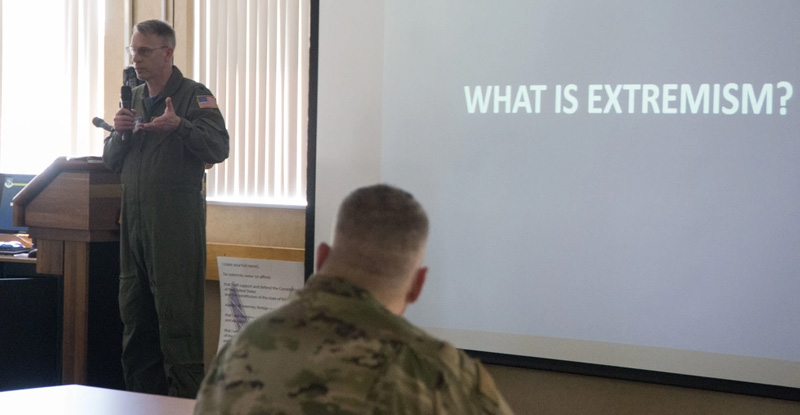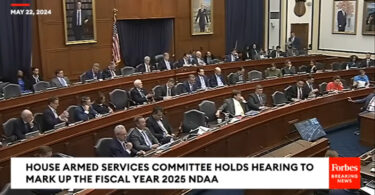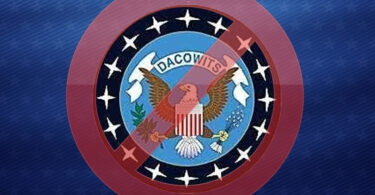By Micaela Burrow, The Daily Caller News Foundation
The Department of Defense’s (DOD) efforts to crack down on extremist ideologies in the military may have caused greater feelings of alienation and hostility within the military, according to a Pentagon-commissioned study released in December.
Secretary of Defense Lloyd Austin commissioned the study in 2021 following the Jan. 6 capitol riots, in which several active duty members of the military and veterans participated, in a bid to gain better insight into the breadth of the “problem,” according to a memo.
But, the study, based on interviews with more than 100 defense officials and experts, government studies, articles and preexisting data an completed in mid-2022, found that DOD, despite two years of work, has failed to understand domestic extremism and may have inflated the issue, to the possible detriment of cohesion within the ranks.
“In the absence of a clear and consistent message, there is a risk that misinterpretations could lead to a significant division in the force along political and ideological lines, with some members of the military believing that they are being targeted for their views,” the study authors wrote.
They “found reason to believe that the risk to the military from widespread polarization and division in the ranks may be a greater risk than the radicalization of a few service members.”
The Institute for Defense Analyses (IDA), a nonprofit that runs several federally-funded research organizations, wrapped up the research June of 2022, but the full report was not made public until December 2023.
“What’s vexing about this is we don’t have a great sense of the scope of the problem,” former Pentagon press secretary John Kirby told CNN in 2021. He said the Jan. 6 riots were a “wake-up call” for the military.
And, the U.S. intelligence community’s 2023 threat assessment characterized active duty military members as recruitment targets for racially-motivated violent extremist groups that adhere to “white supremacy, neo-Nazism, and other exclusionary cultural-nationalist beliefs.”
Such groups take advantage of political polarization to reinforce their ideologies and “believe that recruiting military members will help them organize cells for attacks against minorities or institutions that oppose their ideology,” the report stated.
But IDA also found no evidence to suggest that the military provides a harbor for violent extremists, despite military officials’ and researchers‘ previously stated concerns.
“IDA’s review found no evidence that the number of violent extremists in the military is disproportionate to the number of violent extremists in the United States as a whole, although there is some indication that the rate of participation by former service members is slightly higher and may be growing,” the authors wrote.
“Service members at all levels told the IDA team they are unaware or confused about existing definitions and standards,” IDA wrote.
The research team recommended focusing on minimizing the causes of extremism rather than focusing on ways to punish servicemembers.
Austin’s April 2021 order also established the Counter-Extremism Working Group to update extremism-related definitions, review recruitment standards and carry out other objectives.
Austin also promised to evaluate results of a 24-hour pause in military operations during which units were supposed to receive anti-extremism instruction, but two years later, the Pentagon has little to show for its efforts, according to USA Today.
Policymakers have alleged the stand-down order following the Jan. 6 Capitol riots and rhetoric surrounding the Pentagon’s counter-extremism efforts, many of which appeared to single out right-wing ideologies as dangerous while ignoring left-wing extremism, could discriminate against conservatives.
“Extremist activity by even one single member of the military is too much and can have an outsized impact on both readiness and the nation’s trust of the Department as an institution. For that reason, we take this issue very seriously,” a DOD official told the Daily Caller News Foundation.
Researchers noted in the report that the military has more flexibility to define extremism and prohibit certain nonviolent behaviors that regular civilians could engage in without legal consequence.
“As American society becomes more polarized, our Service members – who are also citizens with their own thoughts and opinions – face the same challenges to unity as everybody else,” the defense official told the DCNF, adding that the Pentagon “will continue its efforts to ensure that all Service members can focus on mission accomplishment without the negative and divisive influence of extremist activities within the Total Force.”
The official noted that internal research demonstrates most members of the military do not display extremist behavior.
The Pentagon “welcomes” IDA input but would continue to focus on implementing recommendations from the Counter-Extremism Working Group through fiscal year 2026, the official said.
Prohibited Extremist Activities in the U.S. Department of Defense — Institute for Defense Analyses, Dec 2023 (pdf)








Leave a Comment